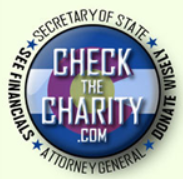In these troubling times, most of us have come together to (at least virtually!) support each other and our communities. But unfortunately, wide-scale crises tend to bring out those who would try to exploit the situation for their own gain. Because of this, the Colorado Department of Regulatory Agencies and the Colorado Secretary of State’s Office are warning Coloradans to be careful to avoid becoming a victim of coronavirus-related fraud. Scams to be aware of include financial fraud, healthcare scams, and charity scams. Reproduced below are warnings and tips from each agency:
From the Colorado Department of Regulatory Agencies:
Scammers seek to get your personal financial or healthcare information, credit card information, social security number, or are seeking to sell you a false product. Below are some of the top COVID-related scams:
Banking/Financial Services Scams
 Bank Deposit Seizures: Claims or assertions that consumer-insured bank deposits can be legally seized by banks is false. The Federal Deposit Insurance Corporation (FDIC) last week demanded Newsmax media “stop and correct its misleading advertising that falsely claims consumers’ FDIC-insured deposits are at risk of forfeiture” from a precious metals trader, Monetary Gold of Woodland Park, California. Federal law is clear that in the unlikely event of a bank failure, customers’ insured deposits would be fully protected up to the $250,000 limit.
Bank Deposit Seizures: Claims or assertions that consumer-insured bank deposits can be legally seized by banks is false. The Federal Deposit Insurance Corporation (FDIC) last week demanded Newsmax media “stop and correct its misleading advertising that falsely claims consumers’ FDIC-insured deposits are at risk of forfeiture” from a precious metals trader, Monetary Gold of Woodland Park, California. Federal law is clear that in the unlikely event of a bank failure, customers’ insured deposits would be fully protected up to the $250,000 limit.- Fake Calls from the Feds: Calls posing as employees from federal agencies, such as the FDIC, who ask for sensitive information like your social security number and bank account information, are scams. The FDIC or any other agency would never make unsolicited phone calls.
- Student Loans: Calls or emails advising you that COVID-19 will have an impact on your student loans, urging you to contact a specific number or visit a website to determine your new payment, are likely a scam. These calls seek to gain your personal information, even when they call or email from what they claim to be your own bank. If you need to verify or have questions about your loan, contact your financial institution with a phone number or email you’ve independently verified.
- Investment scams: Scammers may call regarding money-making opportunities by investing in certain products or services of publicly traded companies that claim to prevent, detect or cure COVID-19. See a recent notice from the Colorado Division of Securities for more information.
- Employment scams: According to the Better Business Bureau (BBB), employment scams may kick into high gear surrounding the current COVID-19-related employment crisis. Read BBB’s tips for avoiding employment scams.
Healthcare Scams
- Fake Test Kits: COVID-19 test kits are not for sale. Any advertisement or call you receive that claims to offer free testing kits, asking for your personal information or health insurance details, is a scam. At high risk to this scam are those considered more vulnerable to COVID-19 complications, including diabetics, those on Medicare or Medicaid, and individuals over 60.
- Threats to Treat Coronavirus: Reports are coming out of callers who pose as healthcare providers claiming they are treating a relative for COVID-19 and demanding immediate payment for treatment or threatening legal action if you don’t pay.
Other
- Charity Scams: With all the relief efforts taking place right now, you may receive calls or emails from fake charities. Scams like these disrupt legitimate charitable efforts, so if you receive any calls or emails to send cash donations by wire transfer or by gift card, this is a scam. If you want to donate to a specific charity, go directly to the organization’s website or call them in order to make direct donation arrangements.
- Fake Online Stores: Scammers may create fake stores that appear in your social media feeds, the websites you visit, and via email addresses. They claim to sell medical supplies, test kits, cures or products that currently are in high demand. These fake stores may even use images of similar items or products you have searched for online. If you fall for a fake digital storefront and use your credit card for the “purchase,” contact your credit card company immediately.
- Phishing, Malware and Apps: Phishing and malware scams are used to gain access to your computer or to steal your credentials. Prevent loading malicious software or downloading apps by never clicking on an unsolicited email or text from a company or organization before verifying the source, even if initially the source appears trustworthy or legitimate. For example, scammers may pose as national and global health authorities, or your financial institutions, and send emails and texts designed to trick you into downloading malware or providing your personal and financial information. Additionally, do not download apps designed to track the spread of COVID-19. It may be a front to gain access to your personal information. Stick to visiting the official websites to get information and data regarding COVID-19.
The Bottom Line
Be overly cautious of emails, texts, apps, advertisements or social media posts that may be selling fake products or information about emerging coronavirus cases. Learn to recognize numbers, emails and texts that may be spoofs, and avoid engaging scam callers by promptly hanging up. Learn more about how to prevent, recognize, and report fraud and scams by visiting the Consumer Financial Protection Bureau and Stop Fraud Colorado.
Sources:
- Better Business Bureau (BBB) – https://www.bbb.org/article/news-releases/21781-coronavirus-creates-perfect-storm-for-scammers
- Consumer Financial Protection Bureau (CFPB) – https://www.consumerfinance.gov/about-us/blog/protect-yourself-financially-from-impact-of-coronavirus/#anchor_potential-scams
- Federal Bureau of Investigation (FBI Denver office) – https://www.ic3.gov/media/2020/200320.aspx
- Federal Communications Commission (FCC) – https://www.fcc.gov/covid-scams; https://abcnews.go.com/Politics/law-enforcement-warns-americans-increasing-coronavirus-scams/story?id=69760340
- Federal Deposit Insurance Corporation (FDIC) – https://www.fdic.gov/consumers/consumer/news/march2020.html; https://www.fdic.gov/news/news/press/2020/pr20040.html; https://www.fdic.gov/news/news/press/2020/pr20037.html
- Federal Trade Commission (FTC) – https://www.consumer.ftc.gov/blog/2020/03/ftc-coronavirus-scams-part-2; https://www.consumer.ftc.gov/features/scam-alerts
- Justice Department – https://www.justice.gov/coronavirus; https://www.justice.gov/opa/pr/justice-department-files-its-first-enforcement-action-against-covid-19-fraud; https://www.justice.gov/opa/pr/attorney-general-william-p-barr-urges-american-public-report-covid-19-fraud
- National Association of Insurance Commissioners (NAIC) – https://content.naic.org/article/consumer_alert_identifying_and_avoiding_covid_19_scams.htm
From the Colorado Secretary of State:
Colorado Secretary of State Jena Griswold is warning Coloradans to beware of possible charity scams during the COVID-19 public health crisis and is offering guidance for safe giving to those impacted by the pandemic.
 “The COVID-19 public health crisis is tremendously impacting all of Colorado,” said Secretary Griswold. “Unfortunately, in times of crisis like this, we’ve seen scams looking to exploit Coloradans’ generosity. I encourage Coloradans to continue to give to those in need, but do so wisely by making sure their donations are going to the right place.”
“The COVID-19 public health crisis is tremendously impacting all of Colorado,” said Secretary Griswold. “Unfortunately, in times of crisis like this, we’ve seen scams looking to exploit Coloradans’ generosity. I encourage Coloradans to continue to give to those in need, but do so wisely by making sure their donations are going to the right place.”
If you decide to make a financial contribution, the Secretary of State’s Office offers the following wise giving tips:
- When giving to a charity, it’s important to confirm the organization is registered and current at checkthecharity.com.
- When receiving solicitation calls, ask if the caller is a paid solicitor, and if so, ask for their name and the name of their company, the paid solicitor’s registration number which can be verified here, and the percent of your donation that will go to charity. If they refuse to give you any of this information, do not give to that charity.
- Be on alert of newly formed charitable organizations. These may be formed with the best of intentions, but an existing charity is more likely have the sound management and experience to quickly respond to the situation, and it will have a track record which you can review.
- Make a note of the representations made regarding how your donation would be used, e.g. what charitable purposes or programs would benefit and whether or not anyone will benefit locally. Call the charity itself to confirm the details of the solicitation and any local benefits.
- Watch out for charities with names that sound similar to well-known, reputable organizations. Sometimes these sound-alike names are simply intended to confuse donors.
- Do not assume that charity recommendations on Facebook, blogs or other social media have already been vetted.
- Be wary if a charity fails to provide detailed information about its identity, mission, and finances and how the donation will be used. Reputable charities will gladly provide the information requested.
- Do not pay in cash. Donate by check made payable to the charity or use the charity’s website to donate by credit card.
If you believe that you have been solicited by a fraudulent charity, you can file a complaint with the Secretary of State or the Attorney General. Attorney General, 1-800-222-4444, coag.gov Secretary of State, 303-894-2200, www.sos.state.co.us
More resources for helpful tips include: Internet and Social Media Solicitations Charities and Fundraisers FAQs Search to see if a charity or solicitor is registered in Colorado
- How to Spot the Differences Between Eagles and Hawks - August 16, 2021
- How Transportation Projects Help Tell the Story of Colorado’s Past - August 9, 2021
- Time Machine Tuesday: The Night the Castlewood Canyon Dam Gave Way - August 3, 2021